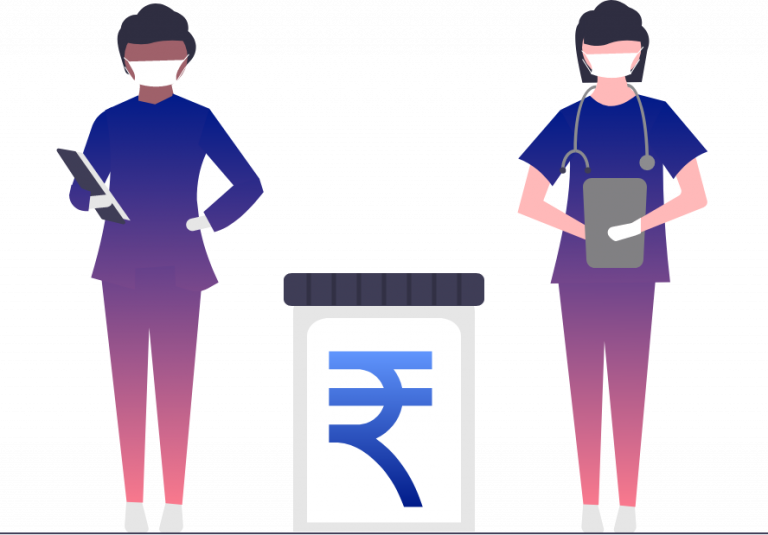Key Takeaways
- Make sure you and your dependents are protected with sufficient health insurance coverage so that you can get the necessary healthcare when you need it.
- Having 3-6 months of your expenses as emergency funds is a must have.
- Term life insurance with a coverage amount that is sufficient enough to take care of our dependants is critical.
- Saving and investing early is important to ensure life’s uncertainties don’t put you off-track from your goals.
- Do not borrow beyond your means so that you avoid the debt trap at all costs.
Make hay while the sun shines. Every time life throws its challenges, you can’t help but wonder – only if I had prepared for this situation better when I had the chance. Unfortunately, by the time this thought pops up in our head, it’s too late to do anything about it.
This cycle of callousness and regret plagues personal finance very often. It is very important to hope for the best but plan for the worst with your finances. Amidst the havoc that COVID-19 has brought about, it has also served as a harsh reminder of some of these basics of personal finance that no one should ignore. Here are 5 of the most important ones.

1) Health insurance is non-negotiable
If there was any scope of doubt about the criticality of having comprehensive health insurance, COVID-19 has put them to bed. Make sure you and your dependents are protected with sufficient health insurance coverage so that you can get the necessary healthcare when you need it, without putting a dent into your hard earned savings and investments. With skyrocketing healthcare costs and increasing competition for quality healthcare resources, you want to make sure you have the best options available to you when you need them most. We have covered this topic extensively in our post on health insurance.
2) Emergency funds are a basic need
Having 3-6 months of your expenses as emergency funds is a must have. Sudden unforeseen expenses or losing a job can put you in a situation where you’re forced to sell off your assets or borrow money. Both of these options are undesirable. If there is an emergency, you might not be able to get a good price on your assets and might even have to sell at a loss. If you have to borrow, the immediacy of your requirement will mean that you will have to borrow under adverse conditions or high interest rates. Instead, keep some funds in the bank so that you can deal with anything that life throws at you. We have discussed this in more detail in our post on emergency funds.

3) Protect those that depend on you with life insurance
COVID-19 has been a sobering reminder of our mortality, re-establishing the need for life insurance. Having a term life insurance with a coverage amount that is sufficient enough to take care of our dependants is critical. This will help make sure that the burden of any loans one may have had doesn’t fall on their loved ones. It will also help ensure that one’s assets remain intact and that their dependents have enough liquidity to take care of any short-term obligations. Most importantly, it will go a long way in helping one’s family stand back up on their feet and be independent in the future. We have explored this further in our post on life insurance.
4) Save and invest for your goals early
When times are good, use it well to fuel your rocket. Do not spend all your income, try to save at least 20%, if not more. Make sure you use your savings wisely by investing it towards your goals. This will help you beat inflation, help you leverage compound interest in your favour and as a result, help you get to your goals early. More importantly, in case you face an unforeseen setback, you will have a tank full of gas to help you navigate the ups and downs and your goals will not be compromised significantly.

5) Don’t borrow beyond your means
Overuse of borrowed funds, especially to fund consumption beyond your means, can be detrimental. Being over-leveraged is in general harmful for your finances as compound interest is working against you. However, the situation can really turn ugly if things go wrong, for instance, if there is a loss in income or a big sudden expense comes up. In such cases, you will still need to continue paying your loans, which can potentially result in default and eventual bankruptcy. We have studied this further in our post on avoiding the debt trap.
Bottom Line
When times are bad, all we can do is put our head down and tell ourselves – we will get through this. At the same time, we should introspect and learn lessons to do better in the future. Every adverse situation comes with heaps of learnings. It’s important to learn them when the time is ripe. COVID-19 has been hard, but we are all in it together and will get through it. Take good care of your health, and when you can, spare a thought for your finances in these tough times. Make sure to stay home and soak up the lessons that these unprecedented times have served up.